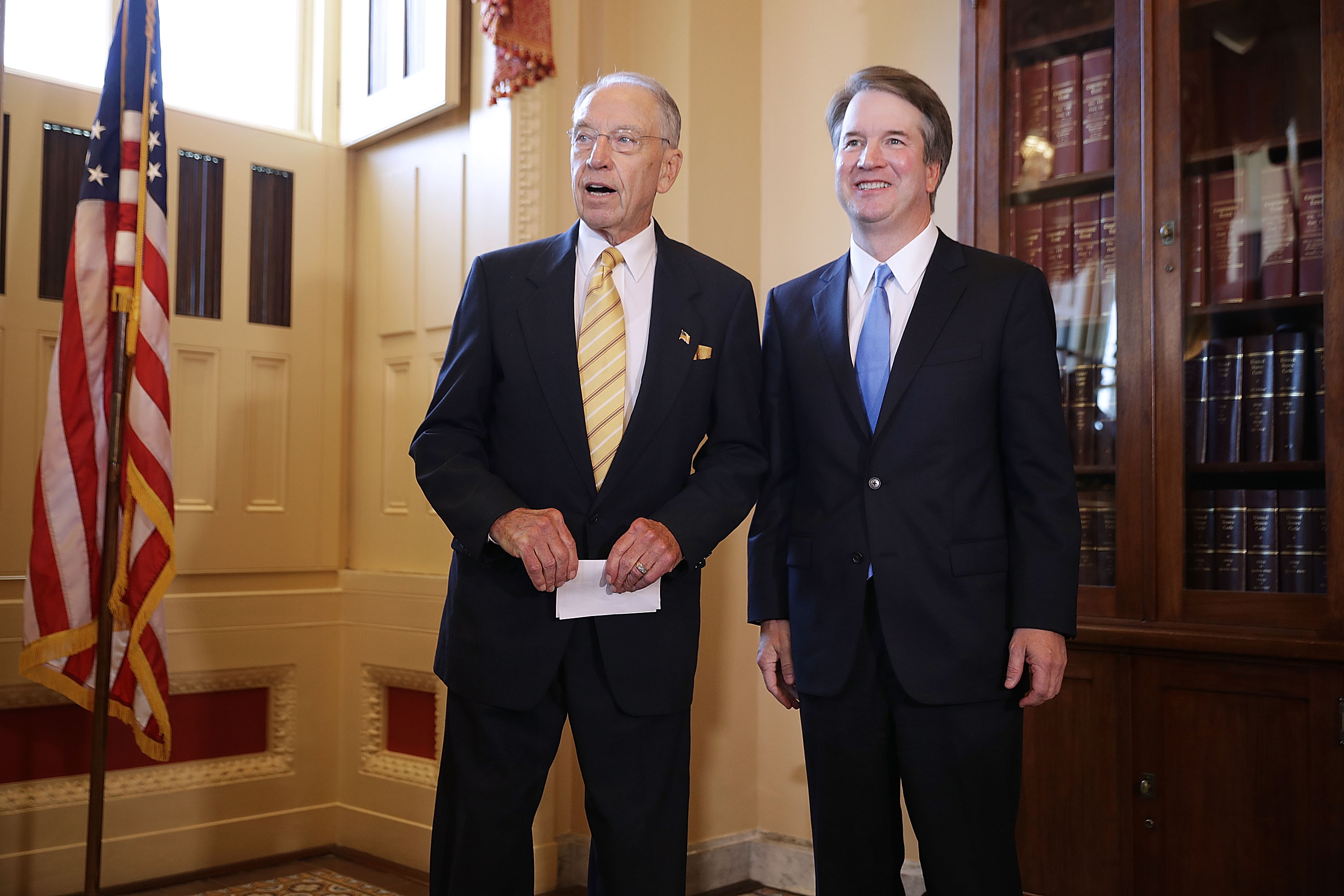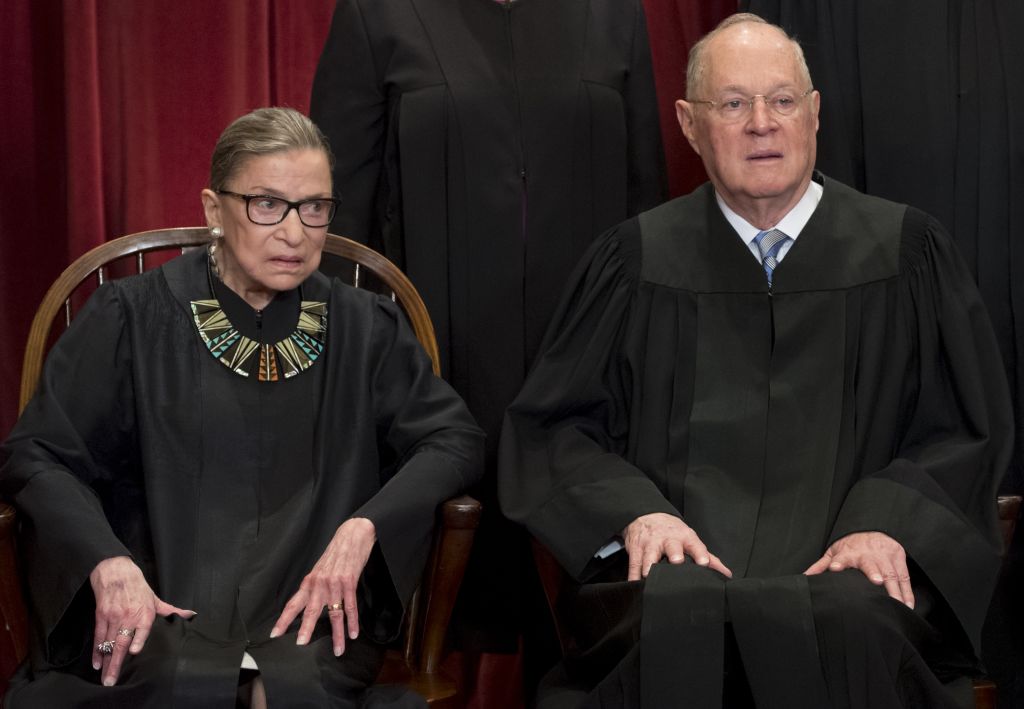Citing executive privilege, the Trump White House is withholding from the Senate more than 100,000 pages from Supreme Court nominee Brett Kavanaugh’s time as a lawyer in the administration of former President George W. Bush.
Those documents would be helpful to senators who will be deciding whether to confirm Kavanaugh to a lifetime appointment to the Supreme court — Kavanaugh currently serves as a judge on the U.S. Court of Appeals for the District of Columbia Circuit.
Even without these documents, though, Kavanaugh’s history as a federal appeals court judge provides a deep look into the thought patterns of President Donald Trump’s nominee to replace former Justice Anthony Kennedy.
Among Kavanaugh’s case history is a remarkably large number of decisions and writings pertaining to environmental policy. For Kavanaugh, that history is one of extreme opposition to environmental protections.
In their previous positions, no other Supreme Court nominee has shown such disregard for the nation’s laws protecting the environment and public health. But early in the confirmation hearing on Tuesday, none of the senators on the Senate Judiciary Committee brought up their concern about Kavanaugh’s environmental record as a member of the D.C. Circuit.
Instead, on the first day of Kavanaugh’s confirmation hearing, Democratic members of the Senate Judiciary Committee requested an adjournment over the withholding of documents. Sen. Charles Grassley (R-IA), chairman of the Senate Judiciary Committee, rejected the calls for adjournment.
In its extensive review of Kavanaugh’s tenure on the D.C. Circuit, the League of Conservation Voters (LCV) found votes and opinions that sided with polluters over people on a regular basis.
“Quite frankly, with a record like this, a Senate confirmation of Kavanaugh will almost certainly put our rights to clean air, clean water, and equitable participation in our democracy at risk,” the LCV said in its review of Kavanaugh’s voting record as a judge on the D.C. Circuit.
Until about 10 years ago, politicians generally supported the bedrock rules that protected the nation’s air and water. There were a few politicians on the margins who railed against these important environmental regulations.
The thought patterns of these extreme outliers have now entered the mainstream thinking of the Republican party. In the nation’s judicial branch, Kavanaugh is one of the foremost practitioners of this anti-environment way of thinking.
Kavanaugh, whom Trump nominated on July 9, has served on the D.C. Circuit since May 2006. The appeals court handles the vast majority of lawsuits against federal agency actions and policies. Kavanaugh has been part of more than 300 opinions on that court, with a consistently conservative record.
“As a federal judge for the last 12 years, Kavanaugh’s legal record shows that he’s antagonistic to common-sense safeguards against big polluters,” the Natural Resources Defense Council (NRDC) said in an open letter to senators.
If Kavanaugh is confirmed by the Senate, the Supreme Court will likely be unable to stop the Trump administration’s “all-out assault on our environmental and health protections, and the federal agencies that create and enforce them, for generations to come,” the NRDC said.
"At @NRDC, we don’t oppose Supreme Court nominees lightly. We haven’t done so in 13 years. In Kavanaugh’s case, we must make an exception, because he would be exceptionally bad for our environment and health." @AnaUnruhCohen#WhatsAtStake #StopKavanaugh https://t.co/OHfClexBjs
— NRDC 🌎 (@NRDC) September 4, 2018
In the two weeks leading up to the confirmation hearing, the LCV put together a list of Kavanaugh’s most anti-environment decisions as a judge on the D.C. Circuit.
In 2012, for example, the D.C. Circuit ruled that the EPA exceeded its authority by protecting the air quality of “downwind states” by limiting air pollution that crosses state lines. Kavanaugh wrote the majority opinion for the D.C. Circuit Court. The Supreme Court later took up the case and overruled him 6-2, upholding the protections against soot and smog crossing state lines.
The LCV emphasized that air pollution doesn’t restrict itself to state boundaries, and certain states, especially in the Northeast, must deal with pollution from Midwestern and Southern states. The “good neighbor” rule established by the EPA holds these states accountable, so that downwind states can keep their air clean.
“He displayed two trends in his decisions: One, that he will time and time again rule for polluters over clean air, and two, that he will attempt to rewrite the law when it doesn’t match his views,” the LCV said. “That is not what a fair-minded judge should do, and it is why we need to stand up to his anti-environment agenda.”
In another case highlighted by the LCV, Kavanaugh wrote a dissenting opinion in 2016 that criticized the EPA for prohibiting a mountaintop removal mining company from dumping their pollution into West Virginia’s waterways. Kavanaugh was upset that the EPA did not consider “the harm to Mingo Logan’s owners and shareholders.”
By suggesting the EPA needed to weigh habitat destruction against the impacts on stock prices, he was reading between the lines of the Clean Water Act, “finding a way to prioritize corporate profits over our health and well-being,” the LCV said. “If confirmed, there is little doubt that he would apply this corporate activism to every environmental case that comes before him,” the environmental group said.
To Kavanaugh, the true public interest at stake in the 2016 mountaintop removal case lay in the “health” of industry profits, according to the LCV, even at the cost of escalating waste and pollution levels.
Kavanaugh’s record on the environment is a subject of scrutiny because former Supreme Court Justice Kennedy had served as a crucial swing vote on environmental protections. Kennedy cast the deciding vote in the landmark 2007 Supreme Court case Massachusetts v. EPA, which ruled that the EPA has the authority to regulate carbon dioxide and greenhouse gases as air pollutants under the Clean Air Act.
Following the Supreme Court ruling, the EPA determined in 2009 that six greenhouse gases endangered public health. That court ruling and the EPA’s 2009 endangerment finding led to the agency proposing the Clean Power Plan during Obama’s second term.
Kavanaugh believes the EPA’s attempts to regulate pollution go too far, unless there’s clear approval from Congress. This philosophy is particularly worrisome to environmental and public health groups because Congress currently has shown no interest in regulating pollution or combating climate change.
Environmental groups also have expressed serious concerns on how Kavanaugh’s rulings impact low-income residents and communities of color.
Earthjustice and several other environmental and civil rights groups wrote in an August 10 letter to Grassley and Sen. Diane Feinstein (D-CA), the top Democrat on the Senate Judiciary Committee emphasizing this point.
“At a time when too many communities of color bear a disproportionate impact from toxic wastes, loose emission standards, dangerous petrochemical facilities and pipelines placed in their communities,” the letter states, “we need a Supreme Court that will combat environmental racism and fight for environmental justice for all, regardless of race, ethnicity, national origin, citizenship status, or income — not someone who will bar the courthouse doors on them,”



